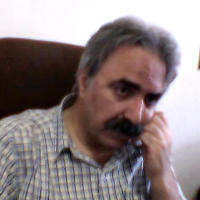An Analysis of the Postmodern Public Sphere with Application of Foucauldian Reverse Methodology to New Media
Author(s):
Abstract:
This article is an attempt to study the role of power and factors involved in formation of Iranian public sphere in the postmodern period. We will use Foucault's reverse method in order to analyze the sources of producing power and how power is being exercised in postmodern world. We will use Foucault's approach to bio-power in order to be able to identify how power is being produced and how it is being exercised and how it leads to formation or lack of formation of public sphere. We have also used Foucault's reverse method so to address some historical breaks that might have occurred in postmodern world.
Application of the Foucauldiannotion of historical break contributed to identifying two theoretical and empirical findings. The first break is offered in the area of theoretical analysis in which we refer to the postmodern controlled society as Negri and Hardt put it in Empire. This argument will clarify how the postmodern power uses new media in order to exercise its influence through the process of communicating mode of control. Contrary to Habermas's approach to internet and its power to development of public sphere we indicate that this has become a postmodern panopticon type of control and a virtual factory in which users behave in a similar manner as postmodern workers in which they use their emotional work so to strengthen the bio-power of capitalism. It seems as if the imprisonment, control and exploitation of subjects is taking place in internet and makes it hard for internet to be transformed into public sphere.
The second break (based on our empirical findings) indicates that it is the centrality of culture and history that contributes to the formation of public sphere as it creates ground for realization of power of masses. Our 2009 field research results in Iran indicates that power of masses which takes its roots from historical as well as Islamic factors can provide the grounds for formation of Iranian public sphere.
Using the results of second break we will indicate that our conclusion for the first break is also valid as we believe internet alone cannot lead to the formation of Iranian public sphere. Other results also indicate that power of masses can be deny the postmodern technologies and this is all because Iranian society enjoys historical and cultural factors that can help formation of an indigenous public sphere that has global orientations.
Application of the Foucauldiannotion of historical break contributed to identifying two theoretical and empirical findings. The first break is offered in the area of theoretical analysis in which we refer to the postmodern controlled society as Negri and Hardt put it in Empire. This argument will clarify how the postmodern power uses new media in order to exercise its influence through the process of communicating mode of control. Contrary to Habermas's approach to internet and its power to development of public sphere we indicate that this has become a postmodern panopticon type of control and a virtual factory in which users behave in a similar manner as postmodern workers in which they use their emotional work so to strengthen the bio-power of capitalism. It seems as if the imprisonment, control and exploitation of subjects is taking place in internet and makes it hard for internet to be transformed into public sphere.
The second break (based on our empirical findings) indicates that it is the centrality of culture and history that contributes to the formation of public sphere as it creates ground for realization of power of masses. Our 2009 field research results in Iran indicates that power of masses which takes its roots from historical as well as Islamic factors can provide the grounds for formation of Iranian public sphere.
Using the results of second break we will indicate that our conclusion for the first break is also valid as we believe internet alone cannot lead to the formation of Iranian public sphere. Other results also indicate that power of masses can be deny the postmodern technologies and this is all because Iranian society enjoys historical and cultural factors that can help formation of an indigenous public sphere that has global orientations.
Keywords:
panopticon , Bio , power , Post modernity , Controlled society , Internet , Public sphere , Irano , Islamic history
Language:
Persian
Published:
Sociological Review, Volume:20 Issue: 43, 2014
Pages:
83 to 110
magiran.com/p1585505
دانلود و مطالعه متن این مقاله با یکی از روشهای زیر امکان پذیر است:
اشتراک شخصی
با عضویت و پرداخت آنلاین حق اشتراک یکساله به مبلغ 1,390,000ريال میتوانید 70 عنوان مطلب دانلود کنید!
اشتراک سازمانی
به کتابخانه دانشگاه یا محل کار خود پیشنهاد کنید تا اشتراک سازمانی این پایگاه را برای دسترسی نامحدود همه کاربران به متن مطالب تهیه نمایند!
توجه!
- حق عضویت دریافتی صرف حمایت از نشریات عضو و نگهداری، تکمیل و توسعه مگیران میشود.
- پرداخت حق اشتراک و دانلود مقالات اجازه بازنشر آن در سایر رسانههای چاپی و دیجیتال را به کاربر نمیدهد.
In order to view content subscription is required
Personal subscription
Subscribe magiran.com for 70 € euros via PayPal and download 70 articles during a year.
Organization subscription
Please contact us to subscribe your university or library for unlimited access!


